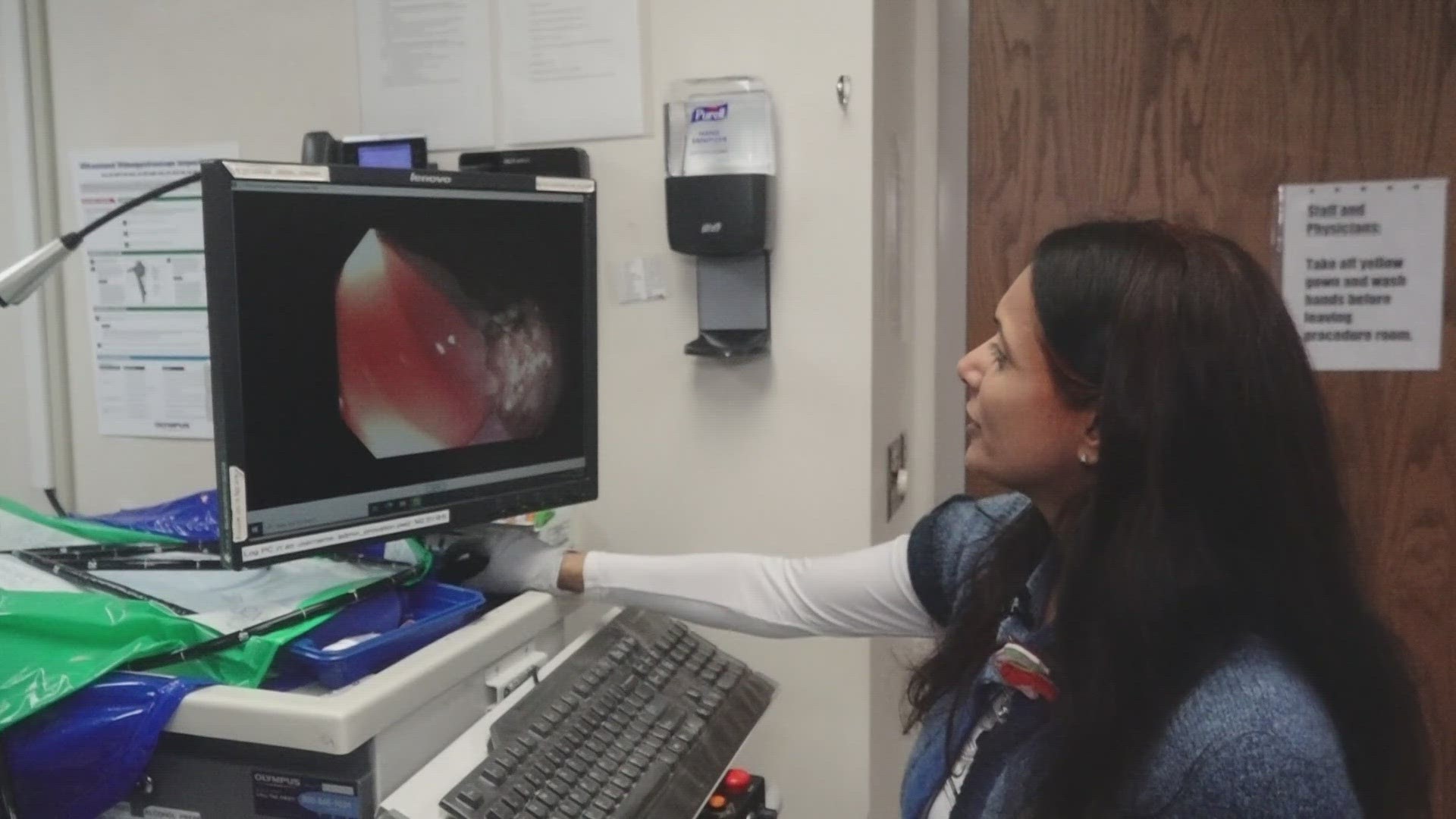MARYVILLE, Tenn. — Dr. Sirisha Jasti, a gastroenterologist at Blount Memorial Hospital, wore blue while she did colonoscopies at the Maryville hospital on Friday.
March is Colorectal Cancer Awareness Month and blue is the color that signifies that. She said the recommended colonoscopy age has lowered in recent years and that people should get their first one when they're 45 years old.
"Whenever you're detecting something early, it's always you can treat it and cure it, in most cases," Jasti said. "And colon cancer is such a preventable cancer that we have, although it's the second leading cause of death. It's most commonly treatable as well as preventable cancer."
Jasti said it's not always fun to prepare for a colonoscopy, but it's important to follow doctors' instructions ahead of time.
At Blount Memorial Hospital, colonoscopy patients are in good hands, she said. Often times colorectal cancers don't present symptoms early on, but some patients may experience them.
"They may present with rectal bleeding, they can have some abdominal pain and they can develop nuanced changes in bowel habits," Jasti said.
She said people who have a family history of colorectal cancer should also get checked earlier, and a family doctor will be able to help people determine if they need to. People can take preventative steps to keep their gut health, she said.
"So one important thing and preventing colon cancer is focusing on your lifestyle. Lifestyle has a lot to do with a lot of cancers," Dr. Jasti said. "One, we for sure know that dietary modifications would help a great deal in overall gut health."
Michael Holtz, from Knoxville, is a colorectal cancer survivor who's spent the last few days going across the country spreading his message about taking steps to prevent colorectal cancer.
Holtz said it's important to get screened.
"Get tested," he said. "Talk to your doctor. If you're 45 or older, you need to get screened for colorectal cancer."

